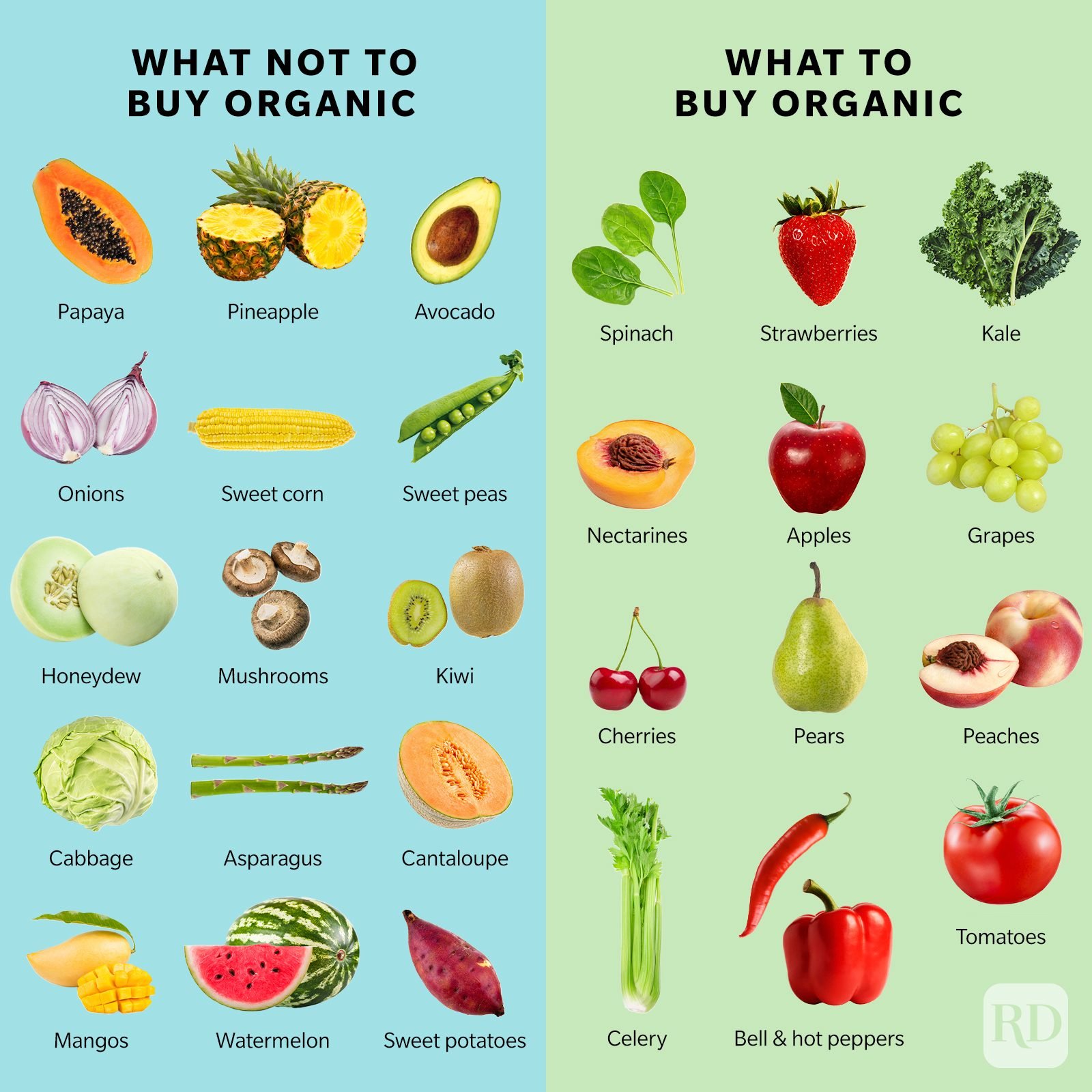Organic food
Organic food refers to products that are grown, processed and produced without the use of synthetic chemicals, pesticides, fertilizers, and genetically modified organisms. Organic farming practices rely on natural methods such as crop rotation, composting, and using beneficial insects to control pests.
Advocates of organic food argue that it is healthier and safer, as it is free of harmful chemicals and pesticides. Organic produce is often fresher and has a higher nutrient content due to the use of soil-enhancing methods and the lack of preservatives. Additionally, organic farming is better for the environment as it reduces the amount of chemicals and pesticides that can seep into the ground and harm wildlife and ecosystems.
Organic meat and dairy products are produced without antibiotics and growth hormones and come from animals that are raised on organic feed and allowed to roam freely. This results in a more natural and ethical production process for the animals.
Another similar alternative to conventional food is biodynamic farming, which is a spiritual and holistic approach to agriculture that views the farm as a self-sustaining system. Biodynamic farming incorporates practices such as lunar planting, composting and using preparations made from herbs and minerals to enhance soil fertility.
Local and seasonal food is another alternative that promotes a more sustainable and environmentally friendly food system. By buying produce that is grown and sold in your local area, you reduce the carbon footprint associated with transportation and support your local economy.
However, it is important to note that organic food can be more expensive than conventional food due to the extra labor and resources required to produce it. In addition, not all organic food is created equal, as some products may contain additives or be processed using methods that do not align with organic principles.
In conclusion, while organic food, biodynamic farming, and local and seasonal food offer a more sustainable and health-conscious alternative to conventional food, it is up to the individual to weigh the benefits and drawbacks and make informed choices based on their values and budget.

Pesticides are widely used in conventional agriculture to control pests and diseases in crops. They are designed to kill or repel pests that can cause damage to crops and reduce yields. However, the use of pesticides has been the subject of much debate, as these chemicals can also have negative impacts on human health and the environment.
Long-term exposure to certain pesticides has been linked to health problems such as birth defects, cancers, and endocrine disruption. Pesticides can also harm beneficial insects, birds, and other wildlife, and can contaminate groundwater and surface water, affecting ecosystems and wildlife. Children and farm workers are especially vulnerable to the harmful effects of pesticides, as they are more likely to come into direct contact with the chemicals.
In addition to pesticides, other chemicals used in food production include fertilizers, herbicides, and fungicides. Fertilizers are used to provide crops with essential nutrients, while herbicides are used to control weeds, and fungicides are used to prevent or treat fungal diseases. Synthetic chemicals are commonly used in conventional agriculture, but their use has raised concerns about their long-term impacts on human health and the environment.
The effects of pesticides and other chemicals used in agriculture can persist long after they are applied. Pesticides can linger in the soil, water, and air for years, causing harm to wildlife and affecting ecosystems. They can also accumulate in the food chain, leading to concerns about the safety of food products and the exposure of humans and animals to these chemicals.
Organic farming practices offer a more sustainable alternative, relying on natural methods such as crop rotation, composting, and using beneficial insects to control pests. Organic farming also prohibits the use of synthetic pesticides, fertilizers, and other chemicals, reducing the potential for harm to human health and the environment.
In conclusion, while pesticides and other chemicals are widely used in conventional agriculture to control pests and increase yields, they also pose significant risks to human health and the environment. Organic farming offers a more sustainable and environmentally friendly alternative, but more research is needed to fully understand the long-term impacts of these substances. Governments and industry need to work together to regulate and monitor the use of pesticides and other chemicals in agriculture, to ensure the safety of our food and the health of our planet.
casino team casinodino playoldgames uno rules informacje